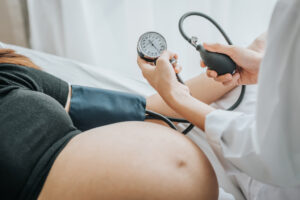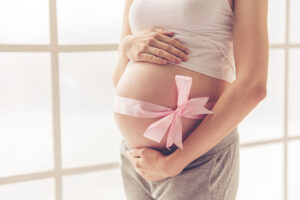Pre-eclampsia is a pregnancy complication that affects about 10% of first time mums. It usually happens after 28 weeks gestation and close to the end of the third trimester.
Symptoms of pre-eclampsia
- headache.
- spots in front of your eyes or blurred vision.
- pain at the top of their tummy, which is either central or right sided.
- Swollen legs*
Swollen legs may be normal in late especially in hot weather.
If you have symptoms of pre-eclampsia and are over 20 weeks you should have your blood pressure checked and see a doctor.
Pre-eclampsia is caused by the placenta not implanting deeply enough into the lining of the womb at the start of the pregnancy. In those at risk of pre-eclampsia your doctor may recommend taking aspirin from at least 12 weeks of pregnancy until 36 weeks.
Women at high risk of pre-eclampsia:
- high blood pressure before pregnancy
- high blood pressure in a previous pregnancy
- chronic kidney disease
- diabetes before pregnancy
Women at moderate risk of pre-eclampsia:
- First time mums
- Age 40 years or older
- BMI>30
- family history of pre-eclampsia
- twin pregnancy.
Pre-eclampsia can be controlled with medication and you will probably be admitted to hospital for close monitoring of you and your baby. Commonly this involves urine tests for protein, blood tests and a daily tracing of your babies heart beat.
However, once you develop pre-eclampsia it can only be cured by delivery of your baby and the placenta. This is often by having labour induced or by caesarean section.
You might wonder how pre-eclampsia affects your baby. For some women, especially those with mild pre-eclampsia there may be no effect on baby. For others the baby may be small or stop growing and this requires early delivery. You will be monitored with regular ultrasound scans to check the size and growth of your baby. These can be as frequent as every second day or more commonly they are performed every two weeks.
If you have pre-eclampsia there is a 16% you will have it in your next pregnancy. If you have severe pre-eclampsia requiring delivery between 28 and 34 weeks the recurrence risk is 25% and if it is severe requiring delivery before 28 weeks the recurrence risk is 50%.






